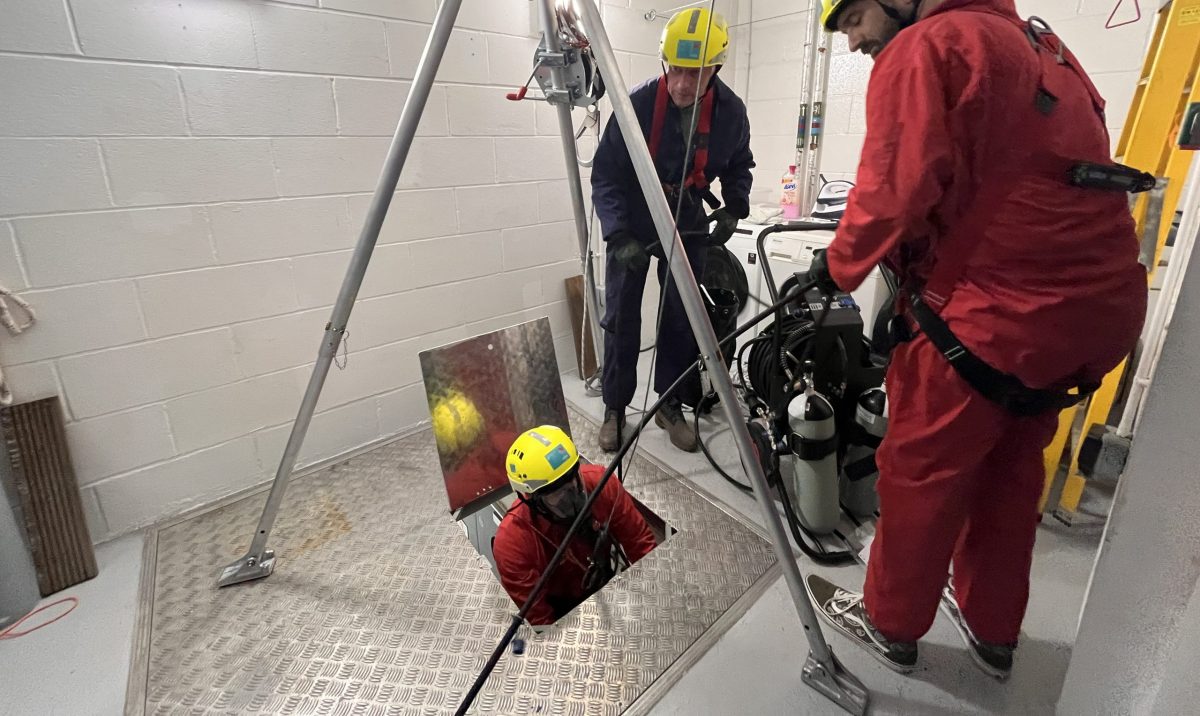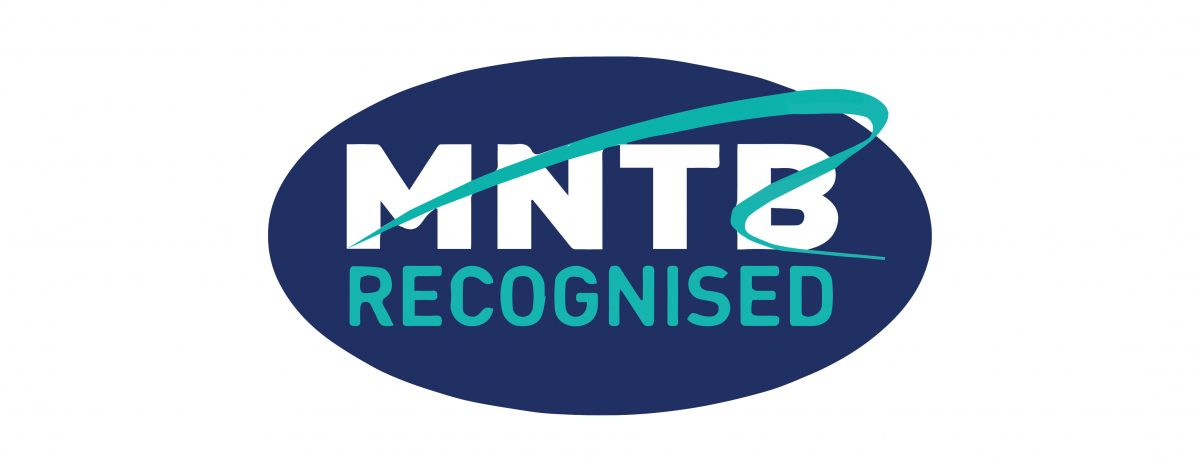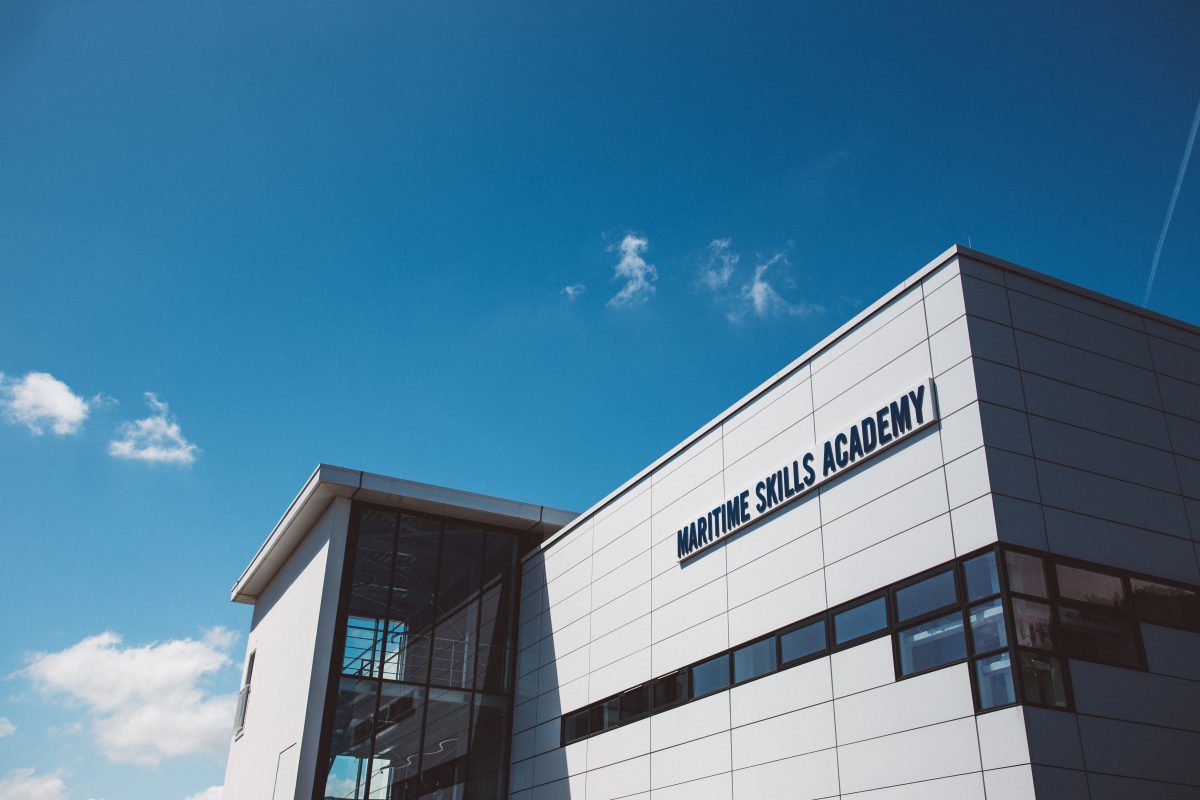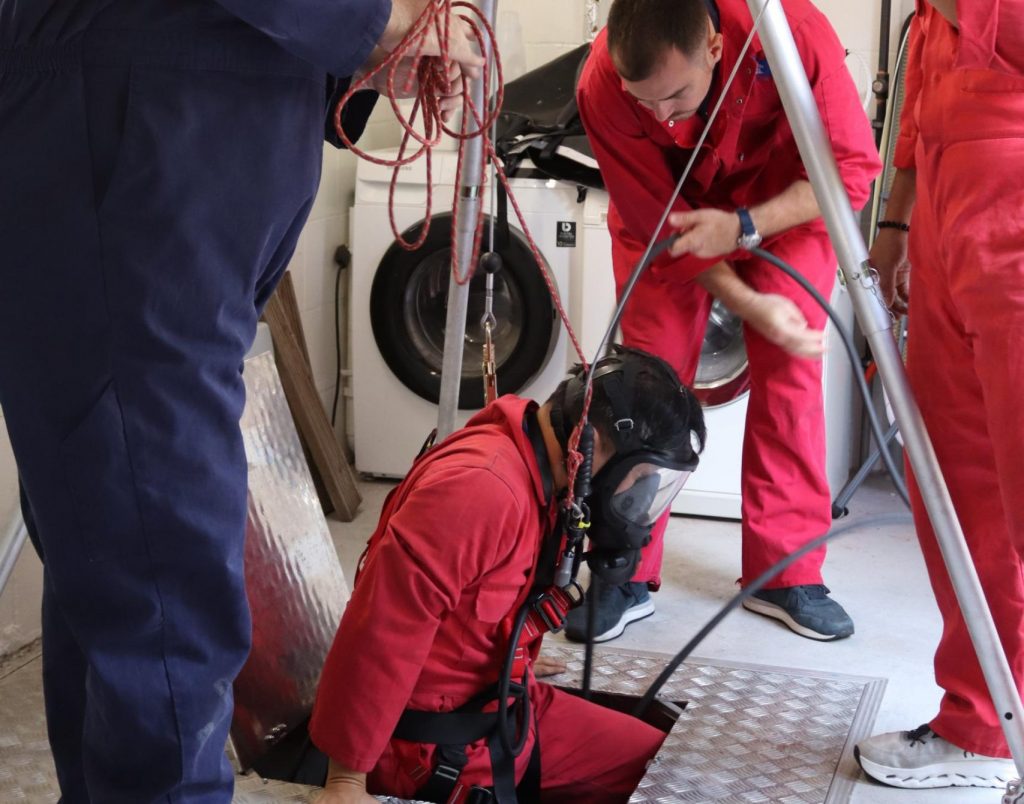Enclosed space entry discussions often surround the responsibilities of high-ranking officers and crew. However, younger, less experienced crew are more likely to be tasked with enclosed space entry and tasks in enclosed spaces. Which is why it is essential to gather their perspective on the current procedures and training surrounding enclosed space entry.
The Crew Experience
For many new seafarers, enclosed spaces represent a hidden risk. Without direct experience, they may underestimate how quickly an environment can become life-threatening. Early training and mentorship are therefore critical to shaping safe behaviour.

The International Convention on Standards of Training, Certification and Watchkeeping for Seafarers (STCW) mandates that all seafarers receive training in personal safety, which includes awareness of the hazards of enclosed spaces. The Merchant Navy Training Board (MNTB) provides detailed guidance and model training frameworks that complement STCW, ensuring that crew are aware of the risks and equipped with the practical skills to manage them.
“When I first started working onboard, I didn’t fully realise how dangerous enclosed spaces could be. The training with the Maritime Skills Academy really opened my eyes – I learned how to check gases, use the equipment, and work with my team safely. It gave me the confidence to speak up if something didn’t feel right.” – Crew member who attended MSA Dover Enclosed Space Training course.
Key Challenges for Crew Members
Junior crew members can often feel the need to prove themselves to more experienced, older crew mates. This can result in rash decision making and enhanced danger in enclosed space emergencies. Proper, regular training will reduce stigma surrounding the experience hierarchy and give less experienced crew the knowledge they need to be able to perform their duties safely.

A lot of ships employ crew from all around the world. This is excellent for creating a multicultural, diverse workforce. However, such diversity can cause communicative barriers. By instilling universal, standard training, we can ensure that crew are prepared for an emergency.
Finally, a common disadvantage of any experienced crew, is complacency. Without regular training on changing regulations and updating certifications, crew can become complacent to emergencies onboard. Although an emergency should be, and often is, an anomaly, crew should always be prepared and trained for such cases. To ensure crew are not becoming complacent, regular training and training standards can be enforced, educating crew on regulations and emergency procedures.
Empowering Crew Through Training
At the Maritime Skills Academy, our focus is on empowering crew through training. Helping them feel comfortable and confident with their duties. Our top-class training offers:
- Crew involvement in realistic drills that include them as entrants, standbys, and rescuers, aligned with STCW requirements and MNTB best practice guidance.
- Encouragement of questioning and reporting unsafe practices without fear of reprisal, embedding a culture of safety accountability.
- Refresher training at regular intervals, as recommended by MNTB, to combat complacency and reinforce safe practices.
By focusing on the crew’s perspective, we can see that junior crew are in need of training, not only to prevent unsafe enclosed space entry practices but also to foster a feeling of empowerment and confidence on board.
By following STCW recommendations and MNTB guidance, we can train crew in enclosed space entry safety both formally and onboard.
At the Maritime Skills Academy, we aim to provide accurate, realistic, engaging and thorough training to prepare junior seafarers for enclosed space entry and emergencies.
To find out more about our course and book your space, click here.



